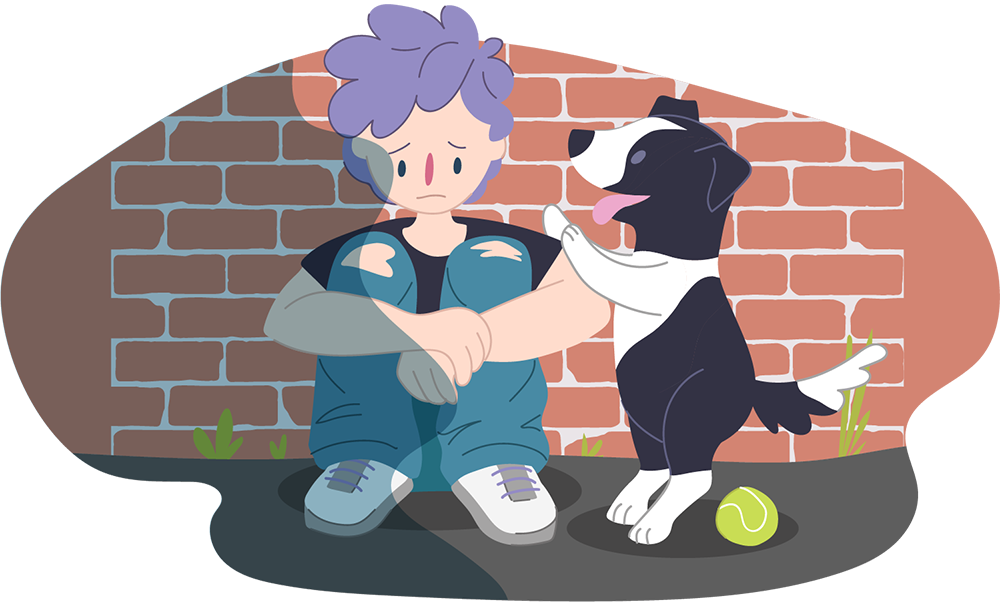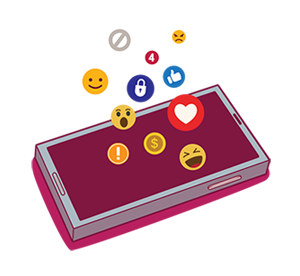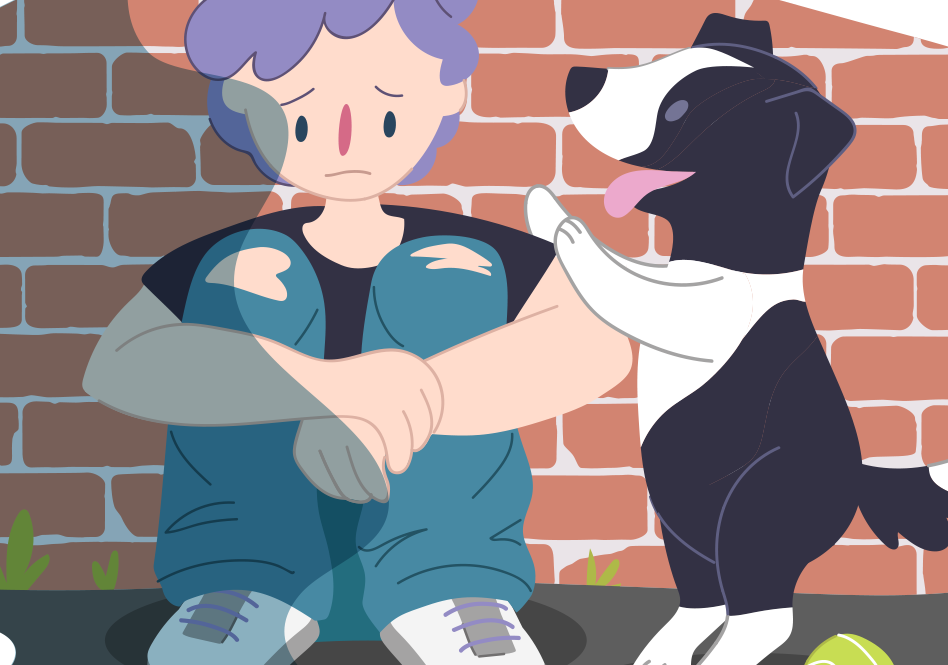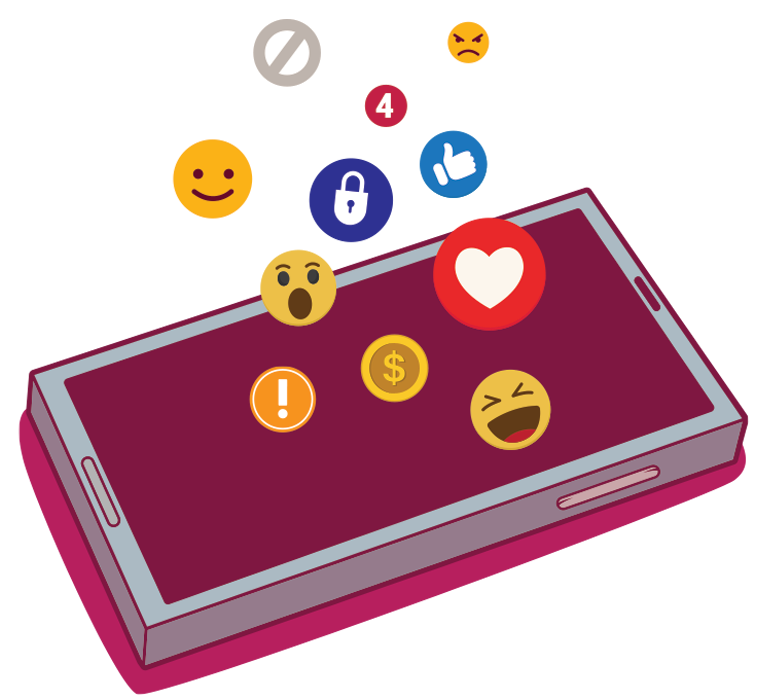All about depression
Everybody’s heard of depression. It’s more than just sadness; it’s a combination of thoughts, feelings, and behaviours. With help, recovery is possible.

“Depression affects many young people. It’s never too late to get help and start on the road to recovery.”
Depression has many faces
Different people experience depression in different ways.
Life experiences affect people differently so what triggers depression in one person won’t necessarily make somebody else depressed.
Depression can last from a few weeks to months or even years if left untreated.
How does depression start?
People might begin feeling depressed for many reasons. For example:
"On the rut days, where you have that sadness and dark energy inside you, I find that you can turn that dark energy into something. Can I make this disgust for myself, this shame, their cringe, this embarrassment, this hatred... Can I make it into art?"
–Cam Walker, aka Struthless, Illustrator and Animator
What does depression look like?
Depression is a combination of thoughts, feelings, and behaviours. If you’re depressed you might:
Feel on-edge, worried, or anxious
Have trouble sleeping
Not have any energy
Not feel like eating
Not feel like showering or getting dressed
Get annoyed or upset by little things
Stop enjoying things you used to find fun
Feel that your life is pointless
Feel empty or numb
Feel cut-off from others and alone
Feel negative about yourself
Feel angry
Have thoughts about wanting to die or hurt yourself
Different types of depression
Depression can take many forms and can last for only a short time, a very long time, or anywhere in between.
- Major depression – sometimes called major depressive disorder, clinical depression, unipolar depression, or simply ‘depression’
- Melancholia – a severe form of depression reflected in slowed physical movement and loss of pleasure in almost everything
- Psychotic depression – when people lose touch with reality and may involve hallucinations or delusions
- Antenatal and postnatal depression – women are at risk of developing depression during pregnancy or after the birth of their baby
- Bipolar disorder – sometimes called manic depression, the person experiences extreme highs and lows
- Cyclothymic disorder – when people alternate between long periods of feeling manic and long periods of feeling depressed
- Dysthymic disorder – similar to major depression except it’s less severe but symptoms can last longer
- Seasonal affective disorder (SAD) – is where changes in seasons cause depression and may be related to changes in light exposure
What to do if you think you’re depressed
Sometimes people get better on their own, but most people need support and treatment to recover from depression.
Spend time with other people you have things in common with
Make an appointment with a GP to talk about what treatment options are available
Sometimes medication is recommended as a treatment option
Take time out and relax when you need a break
Try looking after your body and brain by doing regular exercise and eating healthily
Sleep is really important so make sure you’re getting enough
Limit the use of drugs and alcohol as this can get in the way of recovery
Try doing the things you used to enjoy or start a new hobby
Counselling, also called ‘talking therapy’, is helpful for many people trying to recover from depression
Seek out someone you trust to talk to about what’s happening and get things off your chest
Call a free counselling service like Kids Helpline to get help and support tailored to you and your situation
Notice what thoughts go through your mind and how they affect your mood then try to replace the negative ones with more positive or neutral ones
Get help today. We’re here for you.
If you think you or someone you know is depressed take action today and get support.
Call us on 1800 55 1800, start a WebChat or email us today.
You can also check out Head to Health for other digital services and resources.
Check these out too:
Sadness and depression
It’s okay to feel sad. It doesn’t necessarily mean you’...
READ MEI'm thinking about suicide
Experiencing suicidal thoughts or feelings? We cover what you can do and ...
READ MESomeone I know is thinking about suicide
If you’re worried that somebody you know is thinking about suicide ...
READ MECoping with emotions
Whether you’re dealing with anger, sadness, frustration or anxiety - it’...
READ ME
Talking helps! We’re here for you.
No problem is too big or too small.
We're here 24 hours a day, 7 days a week







